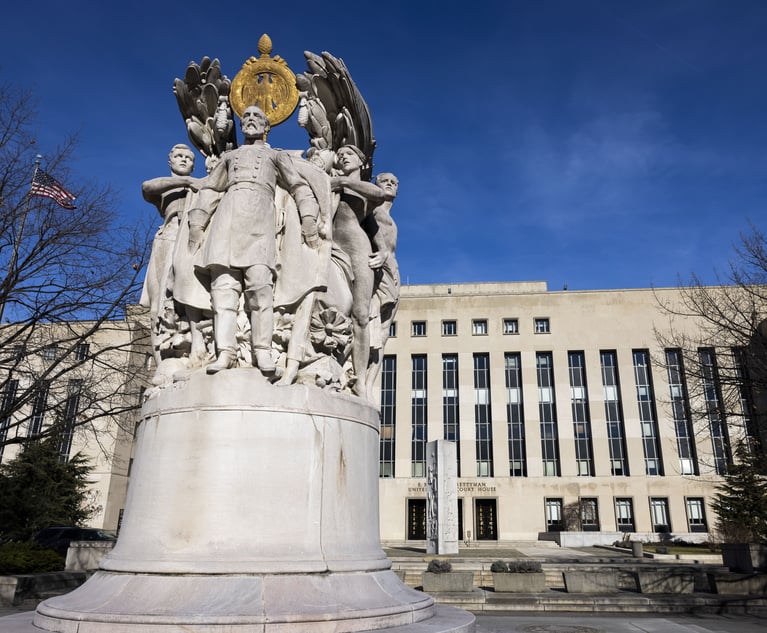For over a decade, even after he was promoted to Cantor Fitzgerald LP’s global co-head of equities, Adam Mattessich received personal checks from other traders who paid him half their commissions from certain clients.
Whether he did anything wrong is at issue in a trial that gets underway Wednesday in Manhattan federal court. Mattessich, who resigned from Cantor in 2018, doesn’t deny the conduct alleged in a U.S. Securities and Exchange Commission lawsuit but claims the firm’s equities division had a permissive culture in which such arrangements were “open and notorious,” and traders received no compliance training to suggest they were not allowed.
Mattessich also claims he was specifically led to believe his deal was acceptable by former Cantor equities capital markets chief Phil Marber, who is expected to testify for the SEC during the weeklong trial.
The SEC isn’t alleging Mattessich directly violated rules that require broker-dealers to keep records of which trades are attributable to which employees for compensation purposes. The regulator instead claims he aided and abetted violations by Cantor, which paid a $1.25 million fine in 2018 to resolve the case without admitting or denying wrongdoing, through his “off the books” arrangement.
According to Mattessich, it’s the first time the SEC has brought such a case against an individual. Both the SEC and Cantor declined to comment on Mattessich’s trial.
The SEC says the commission-splitting scheme originated in 2002, when Mattessich, then a senior execution trader on the international equities desk, was denied a request to collect commissions from trades on certain accounts he serviced. Mattessich allegedly circumvented the decision by transferring the accounts to sales traders on the desk with the understanding that they would share their commissions with him via personal checks not tracked by the firm’s systems.
The sales traders paid Mattessich for years, even after he was promoted to desk head and then equities co-head, the SEC says. One of the sales traders, Joseph Ludovico, paid Mattessich at least $58,200 through the arrangement in 2013 alone, according to court documents. Ludovico, who is also expected to testify at Mattessich’s trial, agreed in 2019 to pay $25,000 to resolve an SEC case without admitting or denying wrongdoing.
Mattessich says in court filings that Cantor traders commonly “pooled” commissions and that his own arrangement was well-known within the firm. He claims the sales traders resorted to paying him with personal checks because of an administrative problem with his code within the firm’s commission system, but there was no attempt to conceal this — one of the sales traders “would hand checks to Mattessich in full view of anyone on the desk.”
The SEC began requiring firms to attribute commissions to specific employees in 2001, but Mattessich says Cantor didn’t provide any training to employees about books and records until 2014, when then-Chief Compliance Officer Gary Distell issued a memo stating it was “not permissible for one employee to pay another employee directly in connection with any Cantor activity.” Mattessich claims he and other traders understood this to be a new policy at the time.
Mattessich also argues he thought he got a green light in a 2002 conversation he had with Marber, but the judge last month shot down his plan to bring up 9/11 in questioning the group CEO at trial. Cantor, which had its offices in the World Trade Center’s north tower, lost the majority of its New York staff that day, and Mattessich said in court filings he expected Marber to testify that, at the time of their 2002 conversation, he “was stretched to his limits trying to save Cantor from collapse and had no time to discuss in any detail requests for changes in account coverage.”
But U.S. District Judge Katherine Polk Failla barred Mattessich from bringing up the impact of 9/11 on Cantor at trial, saying the issue was irrelevant to the SEC’s allegations and might prejudice the jury. The terrorist attack could still come up. Mattessich says in court filings that one of the accounts on which he shared commissions was inherited from a friend who perished in the World Trade Center.
Mattessich joined Cantor from Jefferies Group LLC in 1996 and, except for a brief stint at HSBC, worked there until he was permitted to resign in 2018 over the commission-splitting arrangement. He was head of the firm’s international equities desk from 2004 through mid-2013 and joined the executive management team for the equities division in 2015.
The case is SEC v. Mattessich, 18-cv-5884, U.S. District Court, Southern District of New York (Manhattan).
Chris Dolmetsch reports for Bloomberg News.
NOT FOR REPRINT
© 2024 ALM Global, LLC, All Rights Reserved. Request academic re-use from www.copyright.com. All other uses, submit a request to [email protected]. For more information visit Asset & Logo Licensing.


 U.S. Securities and Exchange Commission building in Washington, D.C. Photo by Diego M. Radzinschi/ALM
U.S. Securities and Exchange Commission building in Washington, D.C. Photo by Diego M. Radzinschi/ALM




